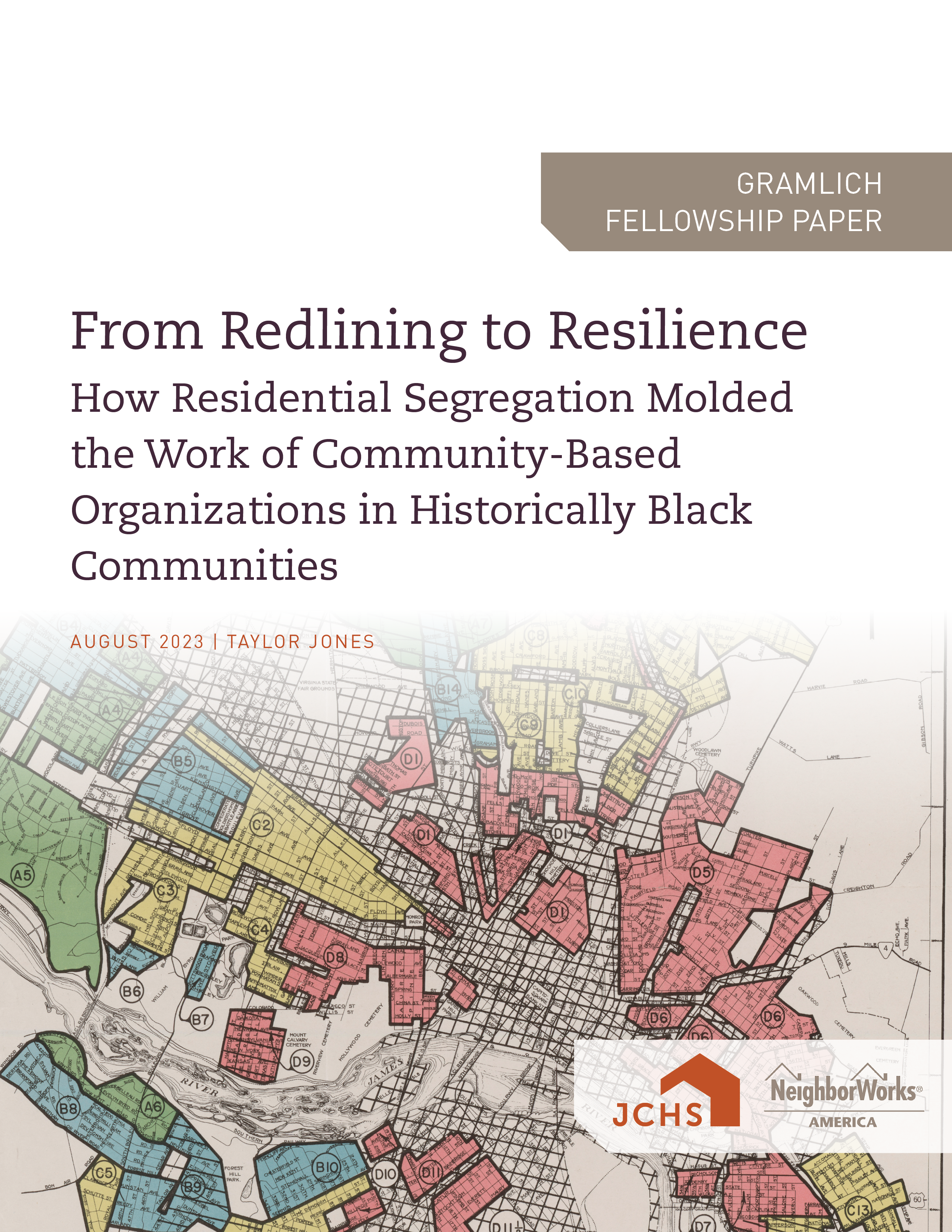From Redlining to Resilience: How Residential Segregation Molded the Work of Community-Based Organizations in Historically Black Communities
Residential segregation, propagated by redlining, blockbusting, racial covenants, and other forms of institutional discrimination, has left an indelible impact on settlement patterns throughout America. Mitigating the legacy of housing discrimination and fostering equity remains a persistent and urgent challenge, and at the forefront of this fight are community-based organizations (CBOs) that serve regions uniquely affected by the legacy of institutional housing discrimination. This paper, based on research conducted while the author was a Gramlich Fellow at the Center, addresses two questions. First, it investigates the extent to which a history of redlining and other forms of institutional discrimination influences the mission, values, and strategies of community development organizations that operate in a formerly redlined neighborhood or a neighborhood that has experienced the impacts of residential segregation. Secondarily, it seeks to clarify the attitude that funders have towards this work and the impact of the racial reckoning of 2020 on funding streams. The objective is to make clear the nuances of the work conducted by these community development organizations and initiate a conversation about what strategies may help funders to better understand and support their work in perpetuity.

